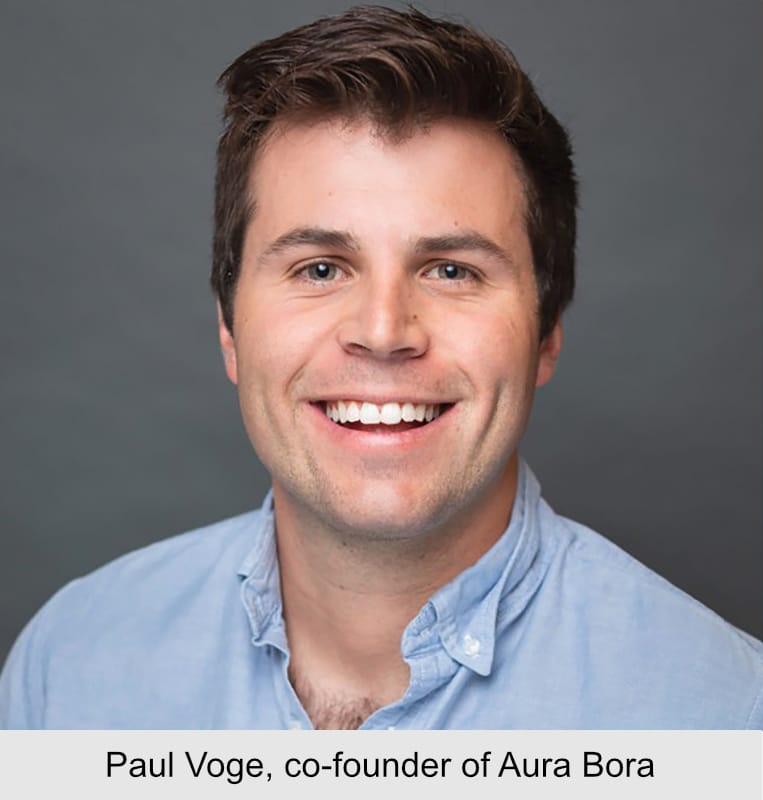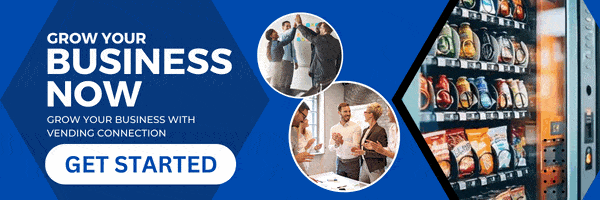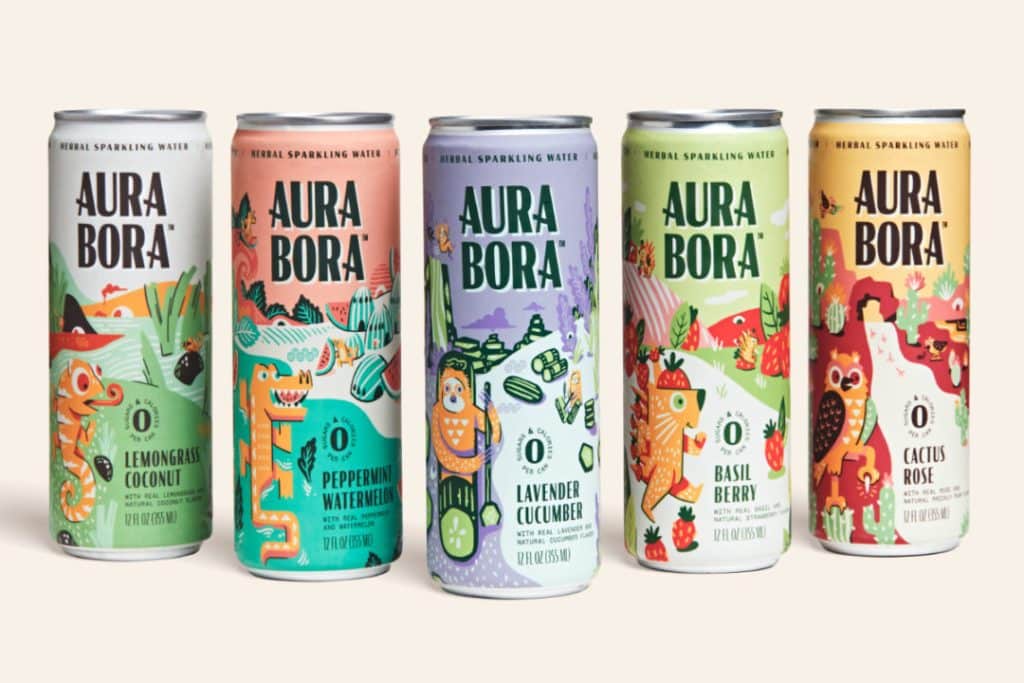Aura Bora Makes a Splash in Sparkling Water Market
SAN FRANCISCO — The sparkling water category has experienced explosive growth in recent years as consumers seek healthier alternatives to traditional soft drinks. But about two years ago, Paul Voge and his wife, Madeleine, noticed a gap in the market for premium options featuring elevated flavor profiles. Months of experimentation with a carbonation machine, essential oils and fresh herbs led to the creation of Aura Bora.
Positioned as a craft sparkling water brand, Aura Bora is flavored with herbs, fruits and flowers. Varieties include lemongrass coconut, peppermint watermelon, lavender cucumber, basil berry and cactus rose. The beverages feature whimsical branding.
“We sold the first cans at the end of 2019, beginning of 2020,” Mr. Voge told Food Business News. “We effectively had two months of a stereotypical CPG business, where I was scheduling as many sampling events as possible, driving around San Francisco in my Subaru delivering products before we had a distributor. That lasted to the end of February. Fortunately for us, just before the pandemic hit, we did sign on a national distributor. I think the trajectory would have changed so much if it was just off by a couple of weeks.”
Today the beverages are sold in 1,200 retailers, including two regions of Whole Foods Market, and online at shop.aurabora.com. As sampling opportunities remain suspended, building brand awareness has become a challenge.
“How do you drive trial?” Mr. Voge said. “The whole point of creating new and interesting flavors was people are used to buying what they’re buying, be it LaCroix or Polar or Waterloo, etc., but if we can have them try this lavender cucumber or cactus rose they might think, ‘Whoa, that is way more interesting.’ We need to meet them in the aisle, and we just didn’t have that option.”

Appearing on the television show “Shark Tank” earlier this year proved beneficial. Two weeks into the initial lockdown period, Mr. Voge received an email initiating an exchange with the program’s casting department.
“They explained they were looking specifically for more food and beverage companies,” Mr. Voge said. “We had only been on the shelf for three months at this point, and lucky for me, they saw our products somewhere in California.”
The episode was filmed last summer. The founders accepted a deal with multimillionaire Robert Herjavec, who offered $200,000 for a 15% stake in the company. At that time, Mr. Voge said the company’s projected 2020 sales were between $500,000 and $600,000, with anticipated 2021 sales between $2.5 million and $3.5 million.
The appearance on the program helped expand the brand’s reach beyond the natural and independent specialty stores where the products are typically stocked.
“I hear entrepreneurs say or read things that seem to suggest that people’s palates or sophistication of ingredients or whether they enjoy natural ingredients scales with income, and I just generally don’t find to be true,” Mr. Voge said. “What has been great about the ‘Shark Tank’ experience is it introduced us not just to people that are organic buyers or people that are spending a higher percentage of income at natural grocery stores, but it introduced us to possibly every income class across the country.”
“In January, I was a guy with 30,000 cans of sparkling water in my basement. By May, we had a real CPG business.” — Paul Voge, Aura Bora
Another boost to the business was its participation last year in the SKU accelerator program for early-stage consumer brands. Startups receive funding in exchange for equity and mentorship from dozens of entrepreneurs, industry experts, executives and investors. The 12- to 14-week program includes a curriculum covering such topics as product development, marketing and branding, legal, finance and accounting, fundraising and operations.
“SKU was incredible,” Mr. Voge said. “In January, I was a guy with 30,000 cans of sparkling water in my basement. By May, we had a real CPG business. The curriculum is great, but the community is best-in-class.”
Long term, the founders of Aura Bora aspire to build a brand that becomes synonymous with the concept of artisanal sparkling water. Mr. Voge shared the examples of Justin’s nut butter and Jeni’s Splendid Ice Creams, businesses that created premium offerings in staple categories.
“Sparkling water has been growing at a double-digit rate for 10-plus years, and yet we still drink less sparkling water per capita than Canada and Western Europe,” Mr. Voge said. “As Americans trade in soda and diet soda products in exchange for sparkling water, we’re ready to be the delightful, peculiar craft alternative people are looking for.”
For more information visit https://shop.aurabora.com/





